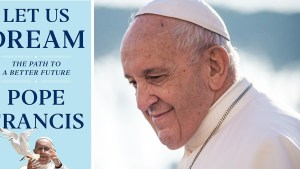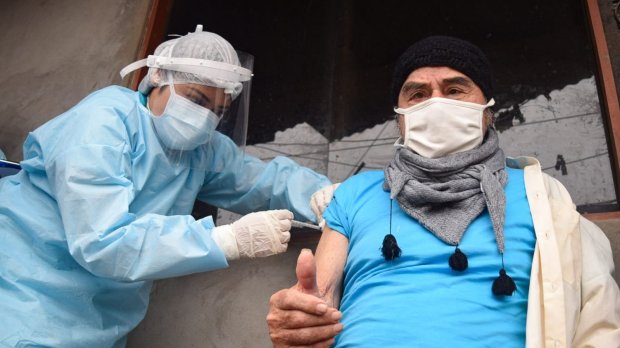The US bishops say that receiving one of the COVID-19 vaccines should be understood as “an act of charity,” and “part of our responsibility for the common good.”
The bishops affirmed this in a statement December 14, as COVID vaccinations in the United States began to be distributed.
The bishops’ statement addresses the ethical issue that the Church always raises in regard to certain vaccines. That is, Catholics are urged to be aware of those vaccines that have been produced using cell lines from aborted babies in the development process, and when possible, to avoid those vaccines, as well as to work and advocate so that alternatives will be made available.
However, when it is not possible to avoid particular vaccines that are associated with the cells of aborted fetuses, as the National Catholic Bioethics Center explains in a FAQ:
One is morally free to use the vaccine, despite its historical association with abortion, if there is a proportionately serious reason for doing so. In practice, the risks to personal and public health could permit its use. This is especially important for parents, who have a moral obligation to protect the life and health of their children and those around them.
About the COVID vaccines, specifically:
In their statement, the bishops address the moral concerns raised by the fact that the three COVID vaccines that appear to be ready for distribution in the United States all have some connection to cell lines that originated with tissue taken from abortions.
There has been a good deal of increasing information in this regard, reflected in Catholic and secular media, and also in previous Aleteia articles.
The Pfizer and Moderna vaccines have a “remote connection to morally compromised cell lines,” the bishops’ statement noted.
As can be seen in this handy chart from the Charlotte Lozier Institute, this connection came from the phase of testing, but is not part of the development and production phase.
The bishops thus stated:
In view of the gravity of the current pandemic and the lack of availability of alternative vaccines, the reasons to accept the new COVID-19 vaccines from Pfizer and Moderna are sufficiently serious to justify their use, despite their remote connection to morally compromised cell lines.
Receiving one of the COVID-19 vaccines ought to be understood as an act of charity toward the other members of our community. In this way, being vaccinated safely against COVID-19 should be considered an act of love of our neighbor and part of our moral responsibility for the common good.
The AstraZeneca vaccine is more problematic as abortion-derived cell lines are involved not only with the testing, but even with the development and production of the vaccine.
Thus the bishops clarified that it should be avoided if an alternative is available, but acknowledged that alternatives might not be available, or might be delayed:
With regard to the AstraZeneca vaccine, the bishops found it to be “more morally compromised” and consequently concluded that this vaccine “should be avoided” if there are alternatives available. “It may turn out, however, that one does not really have a choice of vaccine, at least, not without a lengthy delay in immunization that may have serious consequences for one’s health and the health of others,” the bishop chairmen stated. “In such a case … it would be permissible to accept the AstraZeneca vaccine.”
The bishops reiterated that Catholics “must be on guard so that the new COVID-19 vaccines do not desensitize us or weaken our determination to oppose the evil of abortion itself and the subsequent use of fetal cells in research.”
The full statement from the bishop chairmen may be found here.

Read more:
Pope’s new book-interview is a step toward a better post-pandemic world

